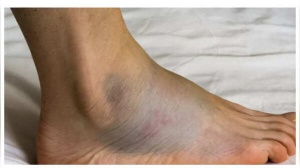Menstrual cramps can be debilitating, disrupting daily life with pain and discomfort. While conventional treatments offer relief, many women seek natural alternatives. For centuries, herbal teas have been used to alleviate menstrual cramps. These teas contain compounds that can relax muscles, reduce inflammation, and improve circulation, offering a comforting and effective remedy.

Here are five ancient herbal teas that can help ease menstrual pain:

Brewing a cup of red raspberry leaf tea can help alleviate menstrual cramps. Made from the leaves of raspberry plants, this tea has a mild taste, similar to black tea. The leaves contain fragarine, a compound believed to strengthen pelvic muscles and reduce uterine spasms. To prepare, add 1–2 teaspoons of dried leaves to hot water and brew for 10 minutes.

Chamomile tea, a superstar in the world of herbal remedies, was used in ancient Egypt and Rome for its calming properties. It is a go-to for menstrual relief, thanks to its anti-inflammatory and antispasmodic compounds, like apigenin. These compounds help relax muscles and reduce cramping. Additionally, chamomile tea can improve sleep and reduce fatigue, while its antioxidants may help reduce inflammation.

Peppermint tea has a long history of use for relieving menstrual cramps, dating back to ancient Greece. It contains menthol, a natural muscle relaxant that soothes uterine contractions and eases cramps. A 2019 study found that menthol in peppermint oil smoothens muscle spasms, thereby reducing painful stomach cramps. Steep 1 teaspoon of dried peppermint leaves in hot water for 5–10 minutes to make this tea. Drinking peppermint tea can also improve digestion and reduce bloating.

For women who crave something sweet during menstruation, cinnamon tea is an excellent choice. Its naturally sweet and spicy flavour makes it a comforting and relaxing drink. A staple in ancient Chinese and Ayurvedic medicine, cinnamon has anti-inflammatory and circulation-boosting properties. It helps reduce menstrual pain by improving blood flow and relaxing uterine muscles. A 2020 study found that cinnamon supplementation can reduce inflammation and oxidative stress levels in humans. Consume in moderation to avoid overstimulation.

Ginger tea is a reliable remedy with potent anti-inflammatory properties. This spicy root contains gingerol, an active compound that may reduce prostaglandin levels, which trigger menstrual cramps. A 2015 study found that women who consumed 750-2000 mg of ginger powder during the first 3-4 days of their period experienced reduced period pain.
Disclaimer: This article is for informational purposes only and does not substitute professional medical advice, diagnosis, or treatment. Consult a healthcare provider before starting any new dietary or herbal remedy, especially if pregnant, nursing, taking medications, or have existing health conditions.
Newer articles
Older articles
 Emma Raducanu Shuts Down Carlos Alcaraz Dating Rumors with Playful Wimbledon Press Conference Quip
Emma Raducanu Shuts Down Carlos Alcaraz Dating Rumors with Playful Wimbledon Press Conference Quip
 Rishabh Pant's "Revolutionary" Cricket Style Hailed by Greg Chappell
Rishabh Pant's "Revolutionary" Cricket Style Hailed by Greg Chappell
 5 Silent Signals of Prediabetes: Recognize the Warning Signs Before a Blood Test
5 Silent Signals of Prediabetes: Recognize the Warning Signs Before a Blood Test
 Wimbledon 2025: Broadcast Guide for India and US Viewers - Dates, Prize Money, and Streaming Details
Wimbledon 2025: Broadcast Guide for India and US Viewers - Dates, Prize Money, and Streaming Details
 Smith Targets Second Test Return After Innovative New York Rehab
Smith Targets Second Test Return After Innovative New York Rehab
 Gavaskar Calls for Kuldeep Yadav's Inclusion in Second Test Amid Bumrah Fitness Doubts, Cites Birmingham Pitch Advantage
Gavaskar Calls for Kuldeep Yadav's Inclusion in Second Test Amid Bumrah Fitness Doubts, Cites Birmingham Pitch Advantage
 Skin Signals: 7 Unexpected Signs of Heart Disease You Should Know
Skin Signals: 7 Unexpected Signs of Heart Disease You Should Know
 India Poised for Dengue Breakthrough as Vaccine Candidate Nears Trial Completion
India Poised for Dengue Breakthrough as Vaccine Candidate Nears Trial Completion
 Science-Backed Steps to a Healthier Heart: 5 Simple Habits for a Stronger You
Science-Backed Steps to a Healthier Heart: 5 Simple Habits for a Stronger You
 FIFA Club World Cup 2025: Upsets, Messi Magic, and 2026 World Cup Concerns Emerge From Group Stage
FIFA Club World Cup 2025: Upsets, Messi Magic, and 2026 World Cup Concerns Emerge From Group Stage